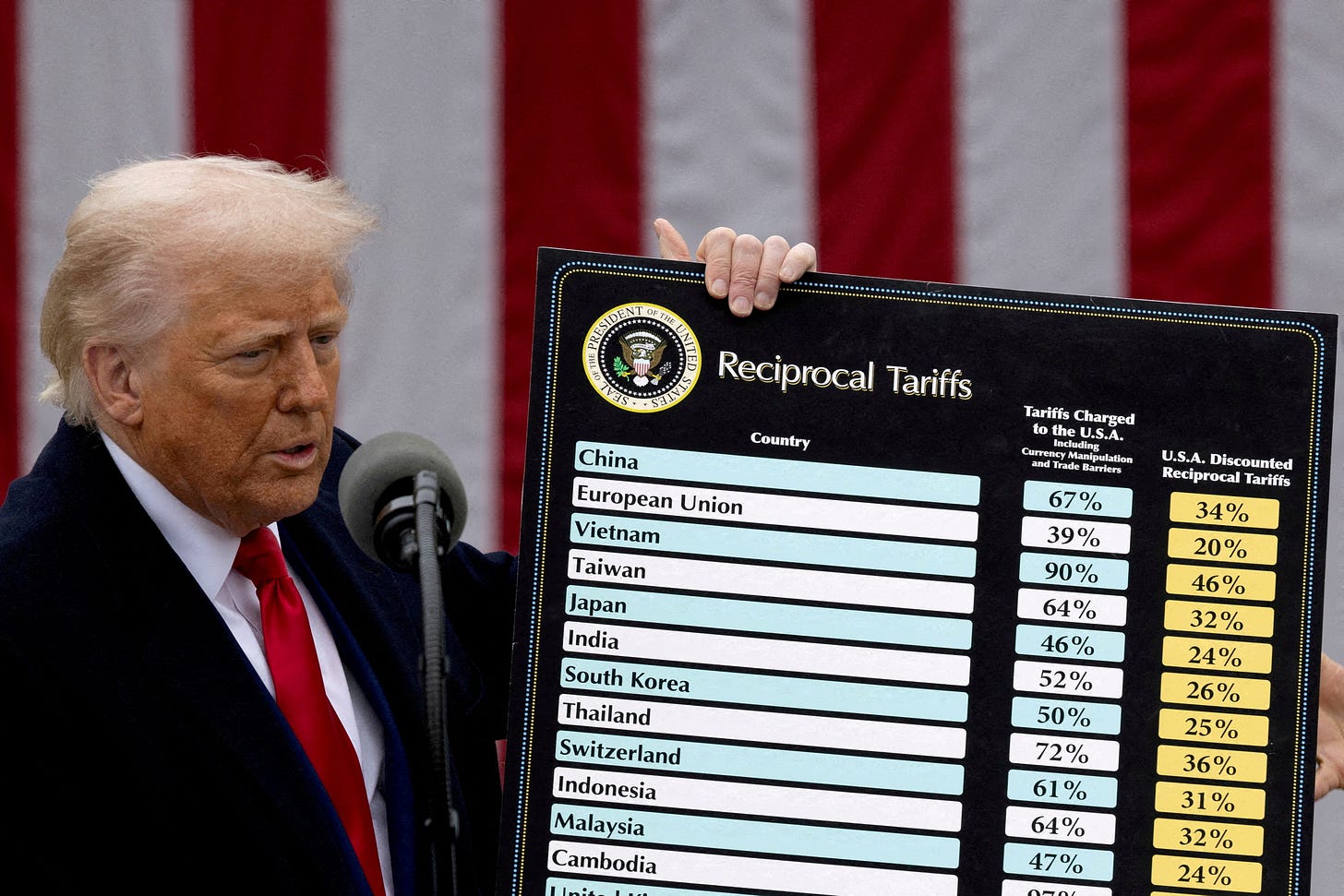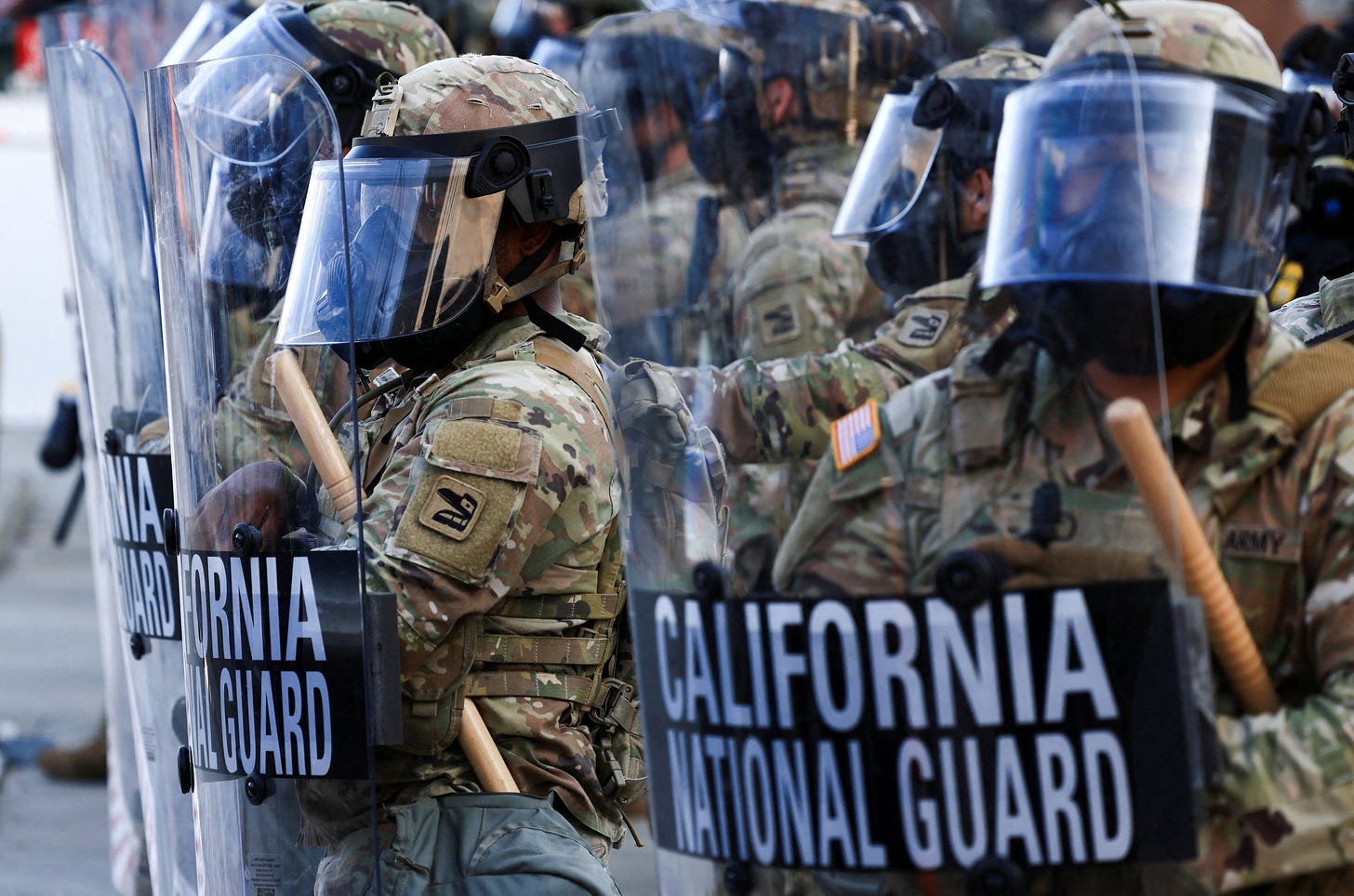The Invisible Chains of Unchecked Power
How a Court Ruling Reveals the Fragility of Constitutional Balance
A recent U.S. appeals court decision against presidential tariffs isn't just about trade; it's a profound moment that reveals the delicate balance of constitutional power. Join me as we explore the 'Why' behind this clash of authorities and the 'How' we can safeguard the foundational principles of our republic.
The Fissure in the Republic's Foundation
Imagine a grand, ancient bridge, meticulously engineered to withstand the test of time, its arches representing the pillars of a democratic state. Suddenly, a subtle crack appears, threatening the very equilibrium of its construction. This is the metaphor I often use when considering recent legal challenges to executive power. A divided U.S. appeals court recently ruled that the majority of tariffs imposed by the Trump administration are illegal, a decision that isn't just a headline for financial markets but a profound constitutional tremor. This ruling, for me, isn't an isolated event; it's a symptom of a deeper, ongoing struggle to maintain the delicate balance of power essential to any thriving republic.
The court's decision, allowing the tariffs to persist only until October 14th to permit an appeal to the Supreme Court, underscores a critical tension: the executive's expansive interpretation of 'emergency powers' versus Congress's constitutionally endowed authority. This conflict forces us, as citizens, to look beyond the immediate political wrangling and delve into the fundamental 'why' of our governance structure. Why does this ruling matter beyond the immediate economic impact? Because it speaks to the very soul of how power is, and should be, wielded in a free society.
The Constitution's Deliberate Architecture: Congressional Supremacy
To understand the 'why' of this ruling, we must first revisit the foundational principles upon which the United States was built. Our Constitution, a document born from a deep suspicion of concentrated power, deliberately allocated the power to tax and impose duties—tariffs—to the legislative branch: Congress. This wasn't an oversight but a conscious design to ensure that economic burdens and policies directly affecting the citizenry would be decided by their elected representatives, upholding the principle of 'no taxation without representation' that sparked the nation's birth.
This arrangement, laid out in Article I, Section 8, Clause 1, is not merely a procedural detail; it is a philosophical bedrock. It ensures accountability, broad deliberation, and prevents the arbitrary imposition of financial burdens by a single executive. When a president, even with the best intentions or under the guise of national emergency, bypasses this established order, they are not just making a policy choice; they are challenging the very architecture of governance. It becomes a question of whether the rule of law, as defined by constitutional text and historical precedent, can withstand the pressures of executive expediency. We see here the thesis of our argument: the power of the purse belongs to the people's representatives.
The Siren Song of Emergency Powers: IEEPA's Modern Temptation
Against this thesis of congressional supremacy, we encounter the antithesis: the executive's appeal to emergency powers. The International Emergency Economic Powers Act (IEEPA) of 1977 grants the president authority to address 'unusual and extraordinary' threats during national emergencies. Historically, IEEPA has been used for targeted sanctions against foreign adversaries or freezing assets—tools designed for specific, limited applications. The Trump administration, however, stretched this authority to impose broad tariffs, arguing that trade imbalances and issues like the flow of fentanyl constituted such an 'unusual and extraordinary' threat.
The temptation of emergency powers is seductive. In a complex, fast-moving world, the executive branch often argues for the need for swift, decisive action unencumbered by the slower pace of legislative debate. Yet, as the appeals court ruling articulated, 'It seems unlikely that Congress intended, in enacting IEEPA, to depart from its past practice and grant the President unlimited authority to impose tariffs.' The problem arises when 'emergency' becomes a justification for circumventing constitutional norms, blurring the lines between crisis management and routine policy-making. This is the dangerous path where the executive, in its pursuit of efficiency, risks eroding the very safeguards designed to protect a free society.
The accumulation of all powers, legislative, executive, and judiciary, in the same hands, whether of one, a few, or many, and whether hereditary, self-appointed, or elective, may justly be pronounced the very definition of tyranny.
– James Madison, "The Federalist Papers No. 47"
A Dialectic of Authority: The Court's Verdict as Synthesis
The court's decision acts as the synthesis in this dialectical struggle between constitutional principle and executive overreach. By ruling that IEEPA does not explicitly grant the president the power to impose tariffs, the judiciary effectively asserts its role as the ultimate arbiter of constitutional interpretation. This isn't just a narrow legalistic interpretation; it's a reaffirmation of the fundamental tenet that powers not explicitly granted, or implied within the strict bounds of delegated authority, remain with the people or their direct representatives.
The ruling doesn't deny the existence of national emergencies, nor does it strip the president of all power to act. Instead, it places a crucial limit: such actions must be grounded in explicit legal authority, not in a broad, unbounded interpretation of an existing statute. The court, in its seven-to-four decision, highlighted the absence of 'procedural safeguards that contain clear limits on the President’s power to impose tariffs' within IEEPA. This emphasizes that any delegation of power from Congress must be clear, specific, and contain checks to prevent abuse. The ongoing tension between expediency and legality is a core challenge to the vitality of any constitutional republic.
The Enduring Philosophical Battle: Liberty, Law, and the Will to Power
Beyond the legal specifics, this entire episode invites us to reflect on enduring philosophical questions about power. Thinkers from Montesquieu, who articulated the separation of powers, to contemporary philosophers wrestling with the nature of state authority, have warned about the dangers of unchecked power. When one branch of government attempts to absorb the functions of another, it not only disrupts the practical mechanics of governance but also corrupts the very spirit of liberty.
This is where the philosophical 'why' becomes deeply personal for each of us. Do we, as citizens, value the efficiency of unilateral executive action over the deliberate, albeit slower, process of democratic debate and legislative consensus? What are the long-term consequences for our freedoms when constitutional boundaries become permeable? The executive's 'will to power,' often driven by a genuine belief in the rightness of its cause, must always be met with the unwavering 'will of law,' as established by the people through their constitution. This is the constant vigil that defines a free society.
The ultimate weakness of violence is that it is a descending spiral, begetting the very thing it seeks to destroy. Instead of freedom, it produces enslavement.
– Martin Luther King Jr.
Safeguarding the Republic: How We Reassert Constitutional Vigilance
So, how do we, as individuals and as a society, respond to these moments of constitutional tension? The 'how' here isn't about practical daily steps, but rather about understanding the mechanisms that safeguard our republic and our role in upholding them. First, the independent judiciary, as demonstrated by this ruling, remains a critical bulwark. It is the institution designed to interpret the law without fear or favor, providing a dispassionate check on both legislative and executive actions. Its continued integrity is paramount.
Second, an informed and engaged citizenry is indispensable. It is our responsibility to understand the constitutional framework, to scrutinize claims of emergency, and to hold our elected officials accountable when they overstep their bounds. This means supporting robust journalism, engaging in civic discourse, and understanding the history and philosophy that underpin our system. Finally, the legislative branch itself must assert its constitutional prerogatives. When Congress allows its powers to atrophy through inaction or deference, it creates a vacuum that the executive will inevitably fill. Reasserting legislative power means careful drafting of statutes, vigorous oversight, and a willingness to stand firm against executive encroachment. It is through these interconnected efforts that we ensure the delicate balance of our republic endures, safeguarding the principles of liberty and the rule of law for future generations.
The Unfolding Narrative of Governance
The court's ruling on Trump's tariffs is more than just a legal victory or defeat; it's a chapter in the ongoing narrative of governance. It reminds us that our constitutional system is not a static artifact but a living, breathing framework that requires constant attention, interpretation, and defense. The struggle between the desire for efficient, centralized power and the imperative for distributed, accountable authority is eternal. Our ability to navigate this tension, to engage in thoughtful dialectic, and to reaffirm the rule of law is the ultimate measure of our commitment to the ideals of a free and just society.





“to navigate this tension, to engage in thoughtful dialectic”